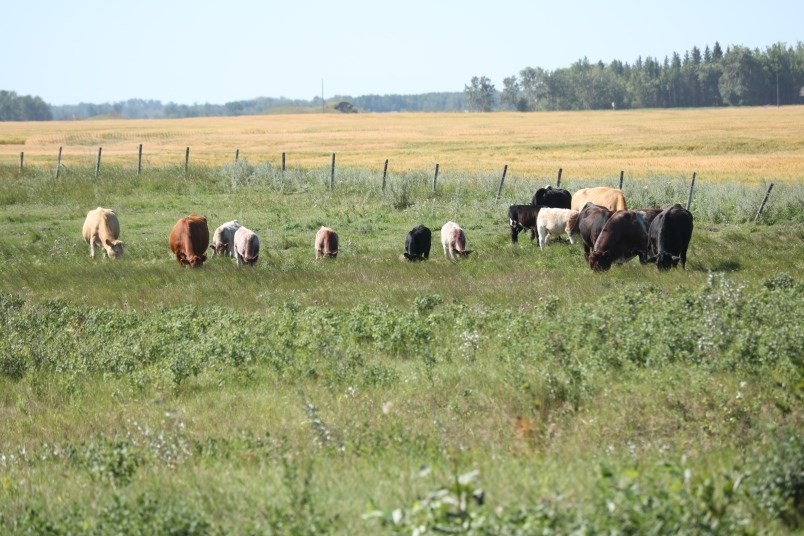YORKTON - When it comes to the environment the poor cow has become one animal that is much maligned as being a problem.
Those who oppose eating meat, or basically using animals at all can give you plenty of ‘reasons’ the cow should be on an environmental wanted poster, but as in most things when a group with an agenda offers up opinions it might be best taken with a grain or two of salt.
And yes that includes checking what farm groups have to say.
We have a powerful tool at our disposal these days, accessing information on the Internet and we should use that when determining how we feel about important issues such as the environment.
Look around. Check who is saying what, and cross reference things until you feel confident you can boil it all down to an informed decision.
So up front, reading this weekly column you have to remember having grown up on a mixed farm in Saskatchewan, and having covered the farm sector for more than three decades I am generally pro farming.
That said, of course there are things that can be done better in farming and how cattle are managed is one area that agriculture always needs to be striving for better options in terms of protecting the environment.
But, even as it is there are a number of overlooked positives about cattle – you can lump sheep and goats in the following too.
For example, a recent article looked at grasslands, in particular native prairie and its role in preventing climate change.
“Climate change is happening and that’s because of carbon in the atmosphere,” said Cameron Carlyle, associate professor of rangeland ecology at the University of Alberta in the article. “Globally, rangelands hold 30 percent of soil carbon.”
Take away cattle, sheep, goats and similar farm stock and at least a chunk of those grassland go under cultivation to grow grain, even though often it is marginal land better suited to growing grass.
You may also have noticed some recent social media posts pointing to how leather is a sustainable option with varied purposes.
The reality is leather is an alternative for oil-based products such as plastics such as PVC and polyester – and it is a renewable material.
We should all be aware of just how massive an issue in terms of the environment plastics are. They basically never degrade in landfills, and our oceans have become dumping ground with ocean life suffering as a result.
Sometimes we need to think of things with a broader lens, cattle have issues, but there are positives to be considered too.
So, maybe it’s time to go back to the Internet to research all the facts before vilifying of championing the cow.






